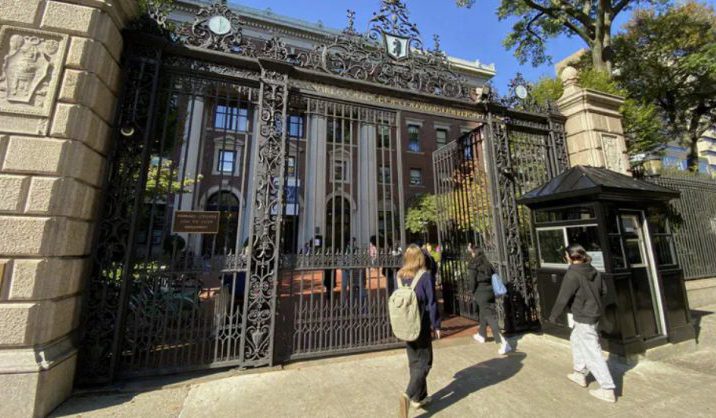Barnard College Settles Antisemitism Lawsuit: Implements Mask Ban, Cuts Ties with Anti-Israel Group, and Appoints Title VI Coordinator
Barnard College has formally reached a legal settlement with a group of Jewish students who accused the institution of failing to protect them amid a surge of antisemitic activity on campus in the aftermath of the Israel-Hamas war, according to a report by the New York Post. The resolution, filed Monday, marks a significant development in a broader civil rights case that has highlighted growing fears of antisemitism at elite American universities.
The agreement outlines several sweeping policy changes at the Columbia University-affiliated women’s college. Most notably, Barnard will impose a campus-wide ban on face masks and sever all institutional engagement with Columbia University Apartheid Divest (CUAD), a controversial anti-Israel protest group. CUAD has called for the divestment of university funds from Israel, which it accuses of “genocide” and “Zionist occupation.”
Additionally, Barnard has committed to appointing a Title VI coordinator—a new administrative role tasked with ensuring the college complies with federal anti-discrimination laws under the Civil Rights Act. Title VI prohibits racial and national origin-based discrimination in institutions receiving federal funds, and the role will be essential for investigating claims brought forward by Jewish and Israeli students.
In a public statement, Barnard College President Laura Ann Rosenbury said, “Antisemitism, discrimination, and harassment in any form are antithetical to the values Barnard champions. Today’s settlement reflects our ongoing commitment to maintaining a campus that is safe, welcoming, and inclusive for all members of our community.”
The college’s decision to settle comes amid heightened scrutiny following numerous anti-Israel protests on campus that have left many Jewish students feeling targeted and unsafe. In February, a protest erupted on Barnard’s campus after the college expelled two students for disrupting an Israeli professor’s lecture at Columbia. That demonstration escalated into a building takeover and was followed by a sit-in protest organized by pro-Palestinian activists. The New York Police Department was called to intervene, leading to the arrest of at least six individuals.
Just months earlier, on the very first day of the academic year, masked protesters staged a rally at Columbia’s main entrance and Barnard’s campus gates, shouting anti-Israel slogans and brandishing signs accusing Israel of genocide. The protest atmosphere left many Jewish students fearing for their safety and feeling isolated.
Attorney Marc Kasowitz, who represented the Jewish plaintiffs, praised the settlement: “Barnard’s commitment to take meaningful actions to combat antisemitism demonstrates its leadership in upholding the civil rights of Jewish and Israeli students. These actions are essential not only for justice, but for preserving the integrity of academic life on campus.”
While Barnard College has now been removed from the broader legal case, the lawsuit against Columbia University—where the bulk of antisemitic incidents are alleged to have taken place—remains ongoing. That case continues to garner national attention as universities across the country struggle to address rising anti-Jewish hostility amid the ongoing Israel-Gaza conflict.
The implications of this settlement are far-reaching. It signals a shift in how institutions of higher learning may be held legally accountable for failing to protect minority groups from targeted discrimination. For many Jewish students at Barnard and beyond, the settlement is a step toward reclaiming a sense of safety and dignity in academic spaces increasingly overshadowed by polarized politics and ideological hostility.





